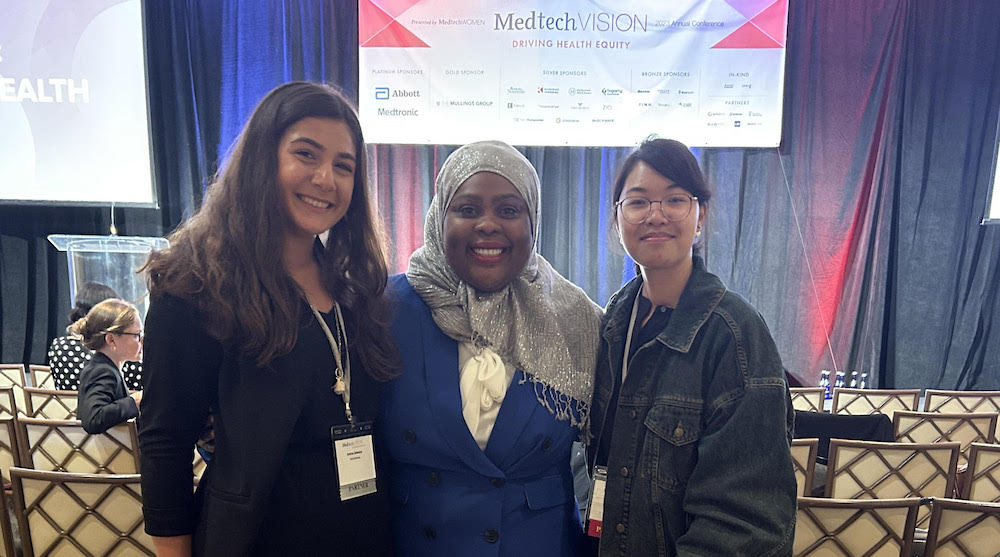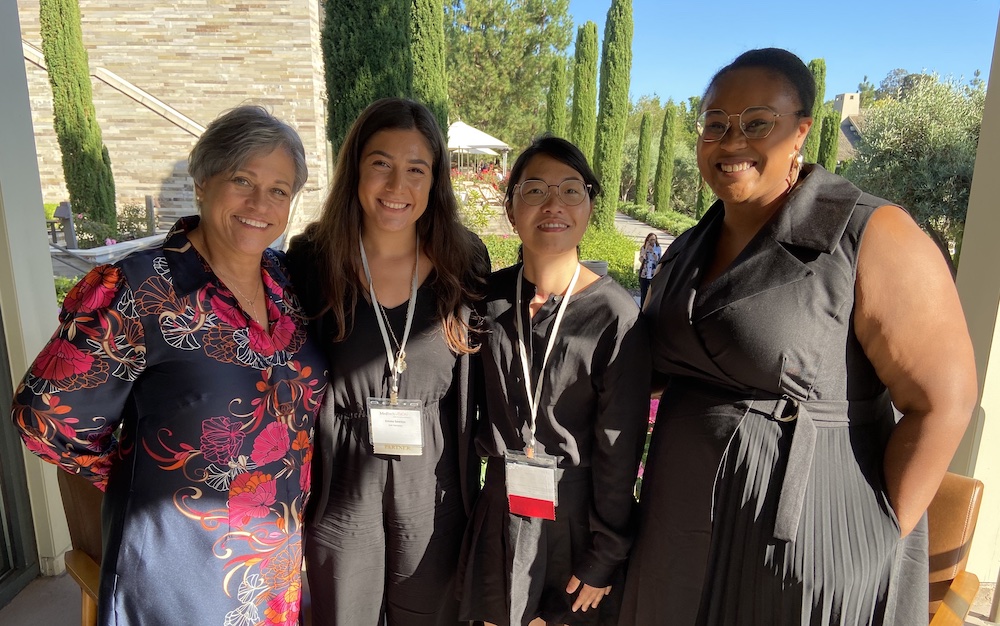Emma Sawaya is a student at UC Davis, who participated in DxD’s Pathways in Health Technology program earlier this year. In September, she was among a group of DxD students who attended MedtechVISION 2023 as a guest of MedtechWOMEN. Here, she shares her biggest takeaways from the inspiring conference.
My name is Emma Sawaya and I’m a third-year college student at UC Davis. Earlier this month, I had the wonderful opportunity to attend the MedtechVISION conference. As a student who participated in the DxD Pathways in Health Technology program a few months ago, I was undoubtedly excited to go to this conference filled with women-empowering speakers in the health tech industry…and to say the least, it did not disappoint.
This year’s theme was focused on the idea of equity in the workplace, specifically in health tech. Although I am not currently working in the health tech industry, I didn’t need any fancy degree to figure out that there is definitely some work that needs to be done. In order to even start talking about equity, you need to know what it is. Equity ensures that everyone gets the appropriate amount of resources, tailored to their individual needs. Equity is often confused with equality, in the sense that equality is providing everyone with the same amount of resources, this “amount” is not adjusted to meet everyone’s specific needs. It is equity, not equality, that needs to be implemented in the workplace.
One quote that really resonated with me throughout the entirety of the conference was this:
“Our zip code can be a better predictor of our health outcomes than our genetic code.”
Pause, and let that resonate with you. If this bothers you, then good, because it should. Your location not only determines what type of care you are able to get access to, but also the quality of care you are inclined to receive.
A great example of this inequity was presented by Hafeezah Muhammed, CEO and Founder of Backpack Healthcare. Hafeezah won the first place award at MedTech Color and was the patient speaker at MedtechVISION this year. Hafeezah and her family were victims of inequity as they had to navigate healthcare settings, encountering obstacle after obstacle. One of her many stories that I can’t stop thinking about is when her 2-month-old daughter got sick with RSV, which was very common at the time. She was moved from her initial hospital since it didn’t have sufficient equipment to treat such a small baby. She had to advocate and fight for her children’s health after being told that her daughter , wasn’t “sick enough” to be treated properly in this hospital. It wasn’t until one nurse who believed in Hafeezah that her baby finally got the care that she needed. I can keep on going, but the underlying theme here is that nobody should have to worry about getting inadequate care due to the limited resources that are provided at their location.

Emma Sawaya (left) with Hafeezah Muhammed and Xiaowen Tang at MedtechVISION2023.
Hafeezah and her baby were warriors and they eventually made it out safely, but the journey Hafeezah took to find the right hospital and make sure that her baby got the right care, was something no one should have to experience. The conference was filled with many more talented and wise speakers in the medtech industry and what was truly inspiring to me was how I was listening to a panel completely composed of women. I felt proud to be a woman and I was truly empowered to embark on a mission in my future to implement equity within the workplace, wherever I may end up.
To learn more about the Pathways in Health Technology program, click here.

